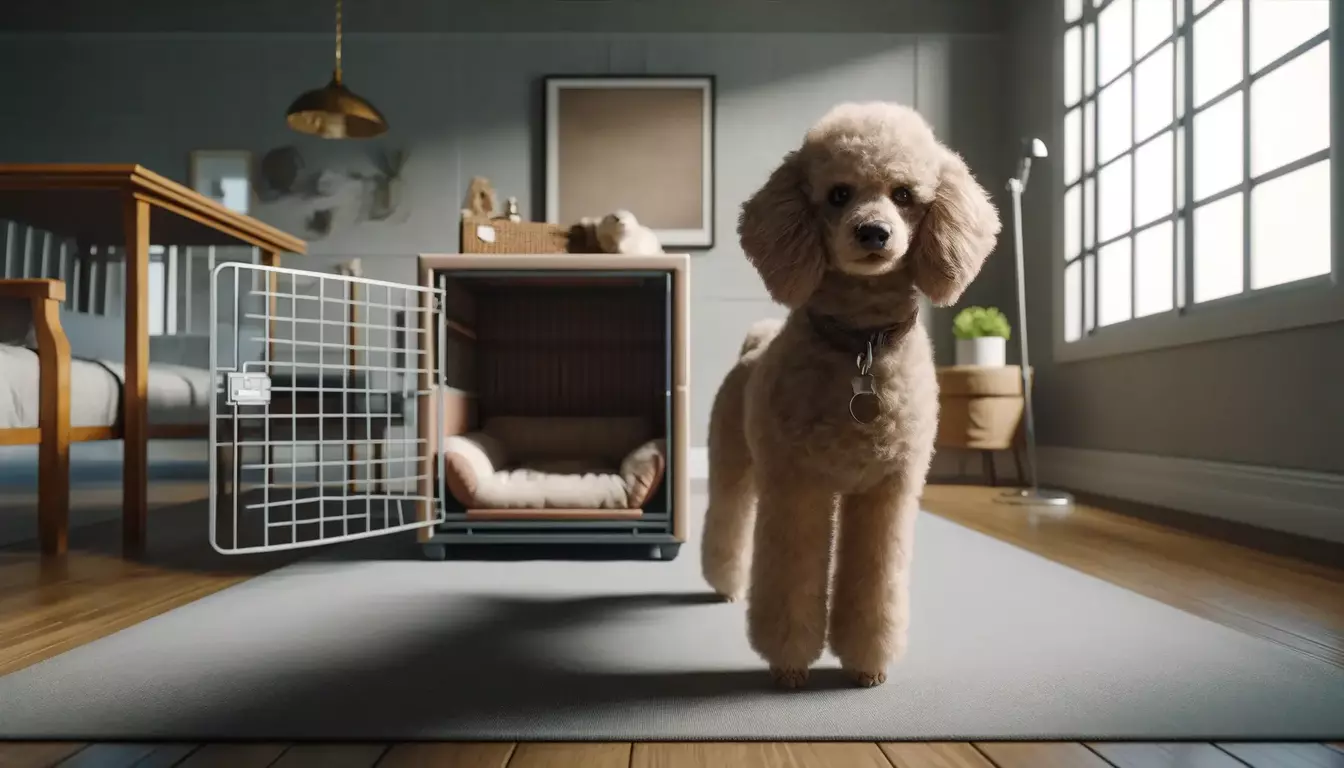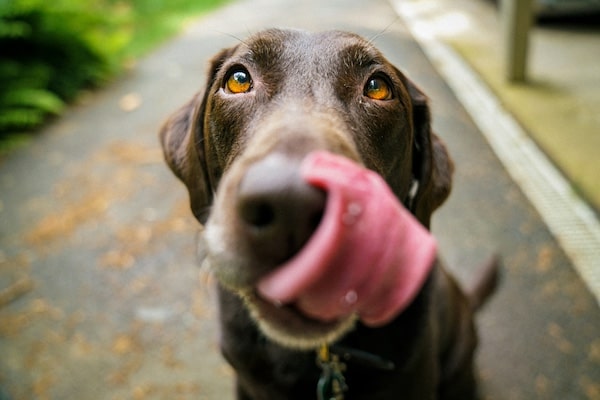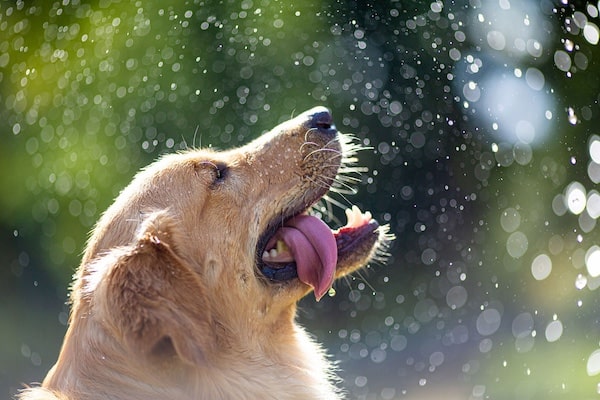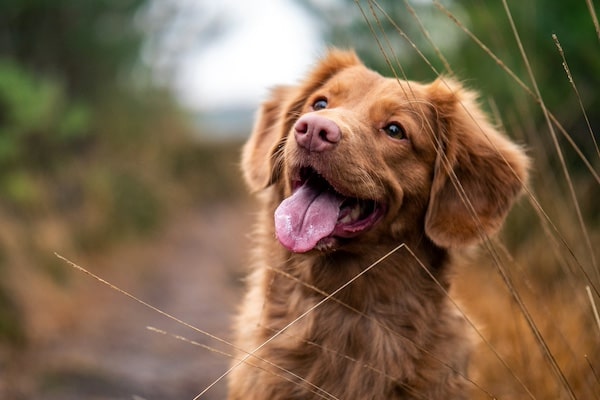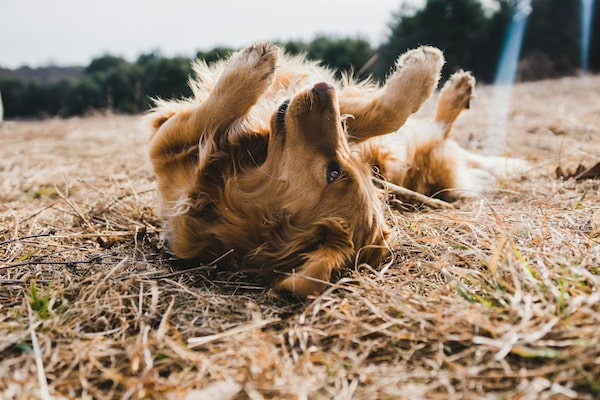Welcome to the definitive guide on the Miniature Poodle, a breed renowned for its intelligence, grace, and versatility. This handbook meticulously details the unique characteristics of these charming dogs, providing future owners with essential insights.
From their hypoallergenic coats to their energetic spirit, Miniature Poodles offer much more than meets the eye. Additionally, readers will find practical advice on training, grooming, and health care tailored specifically to this breed’s needs. Whether considering adoption or aiming to understand your pet better, this guide serves as an invaluable resource for nurturing a healthy, happy relationship with a Miniature Poodle.
Miniature Poodle – Size & Life Expectancy
Height
10-15 inches
Weight
10-15 pounds
Life Expectancy
10-18 years
About the Miniature Poodle
The Miniature Poodle, often cloaked in elegance and pride, carries a rich history that dates back to its origins in 16th century Europe. Originally bred from the Standard Poodle, which was used for duck hunting, the Miniature Poodle was developed to perform similar tasks on a smaller scale. Their keen intelligence and trainable nature made them excellent at retrieving game from the water, a trait that has not diminished through the centuries. Despite their utilitarian beginnings, it wasn’t long before Miniature Poodles transitioned from the lakes and woods into the laps of French aristocracy, becoming a symbol of wealth and status.
The breed’s name, “poodle,” comes from the German word “pudel,” which refers to the splashing of water, a nod to their water retriever roots. As they became more popular across Europe, their role shifted from a sporting dog to a companion and show dog, with their grooming styles becoming a canvas for professional groomers and dog shows.
Miniature Poodle Today: Popularity and Ownership
Today, the Miniature Poodle stands as one of the most popular breeds in the world. This is attributed not only to their historical prestige but also to their adaptability and friendly demeanor. They are ranked highly by various kennel clubs for their obedience and agility, making them regular competitors in dog sports.
Miniature Poodles are especially favored for their hypoallergenic coats, which make them an ideal choice for families with allergies. Their fur, dense and curly, requires regular grooming to maintain its condition and prevent matting. This need for frequent care often leads to a close bond between the poodle and their owner, as grooming becomes a regular part of their interaction.
The breed’s intelligence and eagerness to please make them exceptionally trainable. They are known for their performance in obedience and agility trials, showcasing their quick reflexes and problem-solving skills. This intelligence also makes them sensitive to their owner’s emotions, positioning them as empathetic companions who provide emotional support.
The typical Miniature Poodle owner today appreciates not only the breed’s physical and behavioral traits but also their historical significance. Owners range from families seeking a playful, affectionate pet that can keep up with children, to older adults looking for a companion that is manageable in size yet robust in personality.
Conclusion
In summary, the Miniature Poodle has evolved from a skilled retriever to a beloved companion, maintaining its stature and intelligence across centuries. Its adaptability to various living conditions and roles makes it as much a versatile family pet as a top contender in show rings. For potential owners, understanding the breed’s rich heritage and meeting its needs for grooming and mental stimulation are key to a rewarding companionship. With their stylish appearance and sharp wit, Miniature Poodles continue to captivate hearts and win admirers all over the globe.
Traits & Characteristics of the Miniature Poodle
- Intelligent and trainable: Highly responsive to obedience and agility training.
- Loyal and affectionate: Forms strong bonds with family members and is very loving.
- Energetic: Possesses a lively spirit and needs regular exercise to stay happy.
- Hypoallergenic coat: Has a curly, dense fur that minimizes allergic reactions.
- Social: Enjoys the company of people and other dogs when properly socialized.
- Adaptable: Can thrive in various living environments, from apartments to large homes.
- Alert and watchful: Makes a good watchdog due to its attentive and protective nature.
Owning a Miniature Poodle
Considering the Miniature Poodle as a new family member? This guide provides an essential overview to help potential owners understand the needs and characteristics of this intelligent and charming breed. Whether it’s health, exercise, grooming, nutrition, or training, each aspect plays a crucial role in the life of a Miniature Poodle. Understanding these will ensure that your future pet thrives in its new home.
Health
Miniature Poodles are generally healthy, but like all breeds, they have their share of health issues. Common conditions include hip dysplasia, epilepsy, and von Willebrand’s disease, a blood clotting disorder. Eye disorders such as progressive retinal atrophy are also noted in the breed. Regular veterinary check-ups can help catch these issues early. Owners can maintain their Miniature Poodle’s health by ensuring they have regular exercise and maintaining a healthy diet to prevent obesity, which can exacerbate health issues. Genetic testing of breeding animals helps responsible breeders minimize the occurrence of these diseases in puppies.
Exercise
Miniature Poodles are energetic and thrive on activity. They require regular exercise to maintain their health and happiness. A daily walk or two is essential, alongside opportunities for safe, off-leash play in a fenced area. Miniature Poodles also excel in dog sports like agility, obedience, and rally, which can be excellent ways to channel their energy and bond with them. Mental stimulation is just as important as physical exercise, so puzzle toys and training sessions are great ways to keep their minds sharp.
Grooming
The distinctive coat of the Miniature Poodle is both a beauty and a responsibility. Their curly, dense fur is hypoallergenic but requires regular grooming to prevent mats and tangles. Professional grooming every 4-6 weeks is recommended, along with weekly brushing at home. This not only keeps their coat clean and tangle-free but also reduces shedding and stimulates skin health. Ear cleaning and nail trimming are part of the grooming routine that helps prevent infections and other issues.
Nutrition
A balanced diet is crucial for the Miniature Poodle’s health. High-quality dog food, appropriate to the dog’s age (puppy, adult, senior), activity level, and any health concerns should be provided. While some owners choose commercially prepared foods, others might opt for home-cooked meals under veterinary guidance. Important to note is that Miniature Poodles may have sensitive stomachs; foods rich in fillers or allergenic ingredients like wheat should be avoided. Treats should be given sparingly to prevent obesity.
Training
Miniature Poodles are highly intelligent and typically excel in training. They are eager to please and respond well to positive reinforcement techniques such as praise, play, and food rewards. Early puppy training classes are recommended to help socialize your dog and begin basic obedience training. Consistent training sessions help strengthen the bond between you and your Miniature Poodle, reduce behavioral issues, and provide mental stimulation. Socialization should extend beyond puppyhood into adult life to ensure a well-adjusted, sociable dog that can handle new experiences and environments confidently.
The Miniature Poodle Standard
The breed standard for the Miniature Poodle sets forth an ideal for physical appearance and temperament, ensuring the breed retains its unique characteristics and functionalities. This standard is what judges use as a benchmark in competitive shows and is maintained by major canine organizations.
Physical Appearance
The Miniature Poodle stands between 10 to 15 inches at the shoulder, displaying a graceful outline with a squarely built frame. The head should be well-proportioned to the body, with a slight rounding at the skull and a moderate stop. The eyes, dark and oval, express an alert and intelligent demeanor. Ears hang close to the head and are set at or slightly below eye level.
The body exhibits a level top line and a deep chest that reaches down to the elbows, not barrel-chested. The tail is set high and carried up, typically docked to maintain balance with the body’s proportions, though docking preferences can vary by country.
Coat and Grooming
A defining feature of the Miniature Poodle is its dense, curly coat, which can be styled in several recognized clips, including the puppy clip, English saddle, and Continental clip. Regardless of the style, the coat requires regular grooming to prevent mats and tangles. The texture of the coat is of utmost importance; it should be of naturally harsh texture and dense throughout.
Color
Miniature Poodles come in a variety of solid colors including black, white, brown, grey, apricot, and cream. The color should be uniform and rich, without patches or shadings. Parti-colors are not acceptable in the show ring.
Movement
Movement is another crucial aspect of the breed standard. Miniature Poodles should move with a light, springy, effortless stride. Front and rear legs move straight and parallel, exhibiting good drive from the rear and proper extension at the front. This gait reflects the breed’s balance and soundness.
Temperament
In terms of temperament, the Miniature Poodle should exhibit a cheerful, friendly demeanor, neither shy nor aggressive. Intelligence and an eager-to-please attitude make them excellent candidates for training and companionship. Their alertness makes them superb watchdogs, yet they are known for their gentle and loving nature.
Conclusion
This breed standard not only preserves the physical attributes of the Miniature Poodle but also ensures the behavioral qualities that make them cherished companions. Adherence to these standards helps maintain the integrity of the breed, promoting health, structure, and temperament that align with the Miniature Poodle’s historic and beloved status.
Miniature Poodle – FAQ
Welcome to the Miniature Poodle FAQ! Here you’ll find answers to common questions about the breed, covering everything from care tips to temperament traits. Whether you’re a current owner or considering adding a Miniature Poodle to your family, this resource is designed to help you understand these delightful dogs better.
Alternatives to a Miniature Poodle
When considering dog breeds similar to the Miniature Poodle in terms of size, traits, and characteristics, several breeds come to mind. The Bichon Frise, for instance, shares a comparable size and has a cheerful and affectionate temperament that makes it a delightful companion. Like the Miniature Poodle, Bichons are known for their hypoallergenic coats, which require regular grooming to maintain their fluffy appearance.
Another breed worth mentioning is the Cocker Spaniel, which, while slightly larger, exhibits a similar level of intelligence and trainability. Cocker Spaniels are also known for their gentle and sociable nature, making them excellent family pets. Their silky coats do require regular grooming, much like the Miniature Poodle’s curls.
The Shih Tzu, a breed that matches the Miniature Poodle in height, is also comparable in its friendly and outgoing personality. Shih Tzus are beloved for their beautiful, flowing coats and their sweet, affectionate nature. They thrive on human companionship and, although their grooming needs are high, they are a joy to care for.
Lastly, the Havanese, a small breed with a vibrant and outgoing personality, shares the Poodle’s love for activity and is equally easy to train. Their coats are long and silky, requiring regular care to prevent tangles, much like the Miniature Poodle.
Each of these breeds, while having their unique charm and characteristics, mirrors the Miniature Poodle in their need for companionship, mental stimulation, and grooming, making them suitable alternatives for potential dog owners looking for a similar breed.
